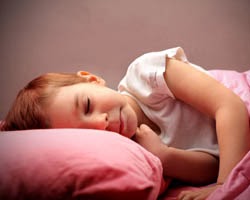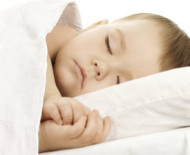Children who snore may be at an increased risk of learning problems
October 14, 2013By Tele management (TeleManagement) Snoring is common among children, with between 3 and 12% affected by the condition. Some of these children suffer from obstructive sleep apnea – a condition where the airways become obstructed, causing the child to briefly stop breathing several times throughout the night. Experts have known for some time that obstructive sleep apnea increases the risk of learning problems and behavioral problems in children. However, it was unclear whether children who snored but did not suffer from obstructive sleep apnea were also at risk from learning problems. Researchers from the University of Louisville, US, compared …
Regular Bedtimes Tied to Better Behavior
PARENTING OCTOBER 14, 2013, 12:01 AM 25 Comments By NICHOLAS BAKALAR A regular bedtime schedule is unquestionably helpful for parents, but a new study has found it that it may be even more beneficial for their children. British researchers interviewed mothers when their children were ages 3, 5 and 7, asking how often their children had a regular bedtime: always, usually, sometimes or never. The mothers and the children’s teachers also completed questionnaires about behavioral difficulties. Almost 20 percent of 3-year-olds had no regular bedtime, compared with 9.1 percent of 5-year-olds and 8.2 percent of 7-year-olds. After controlling for many social, economic and …
Child obesity rates dropping
Changes small, but 1st time in generation there’s improvement Cathy Payne @cathyapayne USA TODAY New evidence suggests the nation is finally turning the corner in the campaign against child obesity. Small but significant improvements in obesity rates of low-income preschoolers were counted in 18 states from 2008 to 2011, Centers for Disease Control and Prevention director Thomas Frieden said Tuesday. “This is the first report to show many states with declining rates of obesity in our youngest children after literally decades of rising rates.” The CDC analysis looked at rates in 40 states, the District of Columbia and two U.S. territories. …
Common sleep disorders in children
Posted on: 6:44 am, August 5, 2013, by Web Staff, updated on: 11:22am, August 5, 2013 See the video at this link… http://myfox8.com/2013/08/05/common-sleep-disorders-in-children/ Snoring is the number one sign of a sleep problem in children. A child may be snoring due to a number of causes such as oversized tonsils and/or adenoids, anatomical issues such as a small jaw or airway diameter, and allergies or asthma that cause swelling of the linings of the airway. If your child is snoring, it is important to seek medical advice quickly, as it can also be a sign of a more serious sleep problem in children …
Kids’ Sleep Patterns Affected by Electronic Media Time and Media Presence in the Bedroom
July 25, 2013 — Children’s sleep disruption is worse with increased time spent watching TV or playing on the computer, finds research in Biomed Central’s open access journal BMC Public Health. The greater the e-media use was at the start of the study, the shorter the sleep duration and the later the bedtime was eighteen months later. The academics suggest that where children are struggling to sleep, or are tired, their media habits should be taken into consideration. The amount of sleep children get has a direct bearing on their performance in school and their mental and physical health. Snap shot studies …
Children’s Sleep in Their Genes?
Children’s Sleep in Their Genes? How long kids sleep may be genetic, study finds By Children’s Health Team | 6/5/13 11:17 a.m. Your toddler’s sleep habits may be affected by both genetics and environment. Genes play an important role in how long your child sleeps at night, and environmental factors influence daytime naps, says a new study. But this doesn’t mean your child’s sleep habits are out of your control, researchers add. Jyoti Krishna, MD, did not take part in the study but treats pediatric sleep disorders at Cleveland Clinic. He says some children just don’t need as much sleep as others. “If the child isn’t …






